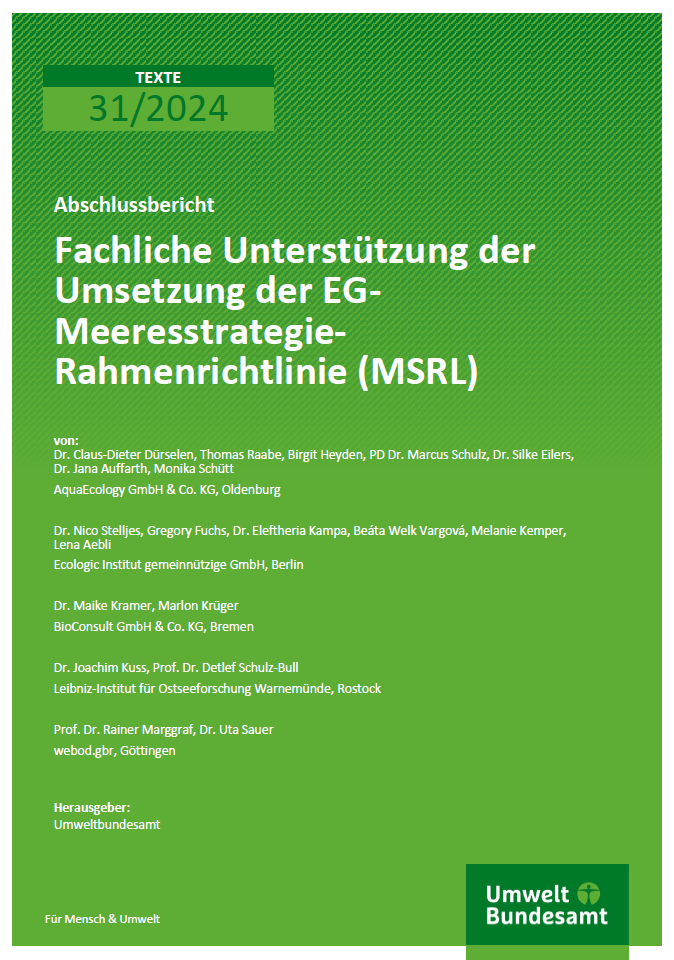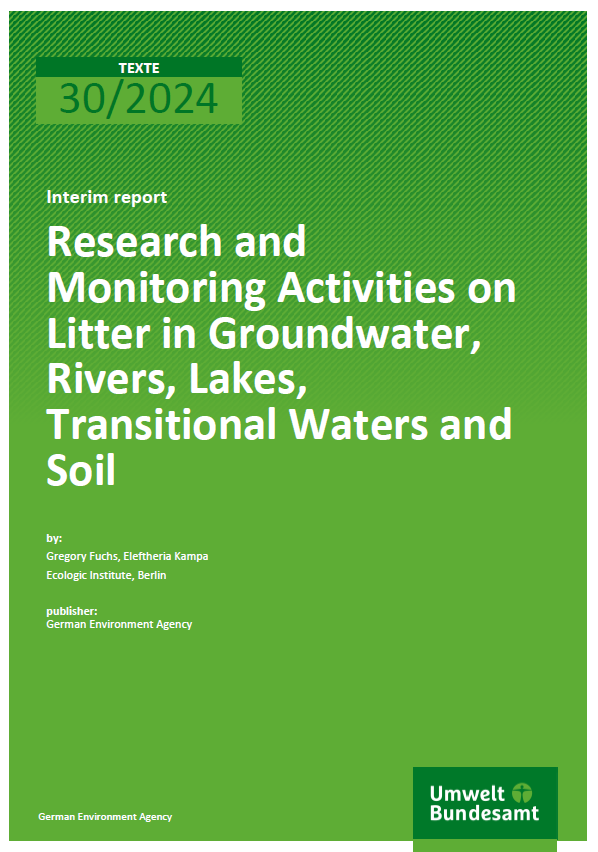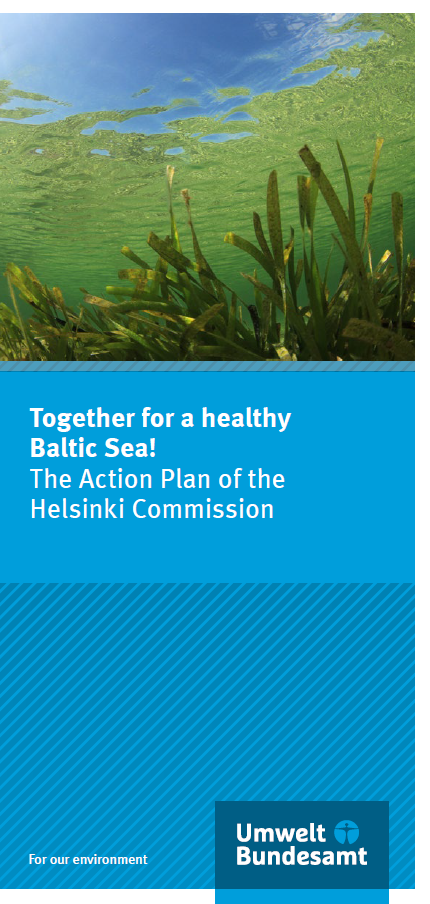Fachliche Unterstützung der Umsetzung der EG-Meeresstrategie-Rahmenrichtlinie (MSRL)
- Publication
- Citation
Dürselen, Claus-Dieter et al. 2024. Fachliche Unterstützung der Umsetzung der EG-Meeresstrategie-Rahmenrichtlinie (MSRL). Abschlussbericht. Umweltbundesamt, Dessau-Roßlau.
This report focuses on the assessment of the status of the marine environment, the definition of environmental objectives and the development of programs of measures to achieve good environmental status. It provides guidance to Member States on the assessment of marine waters, identifies key pressures and pressures factors and offers approaches for setting environmental targets. It supports the development of monitoring programs and the implementation of measures to reduce pollution and conserve biodiversity.
Assessment of the state of the marine environment
The assessment of the state of the marine environment forms the basis for all further steps of the MSFD. It includes an analysis of the current environmental situation and the main problems affecting the seas and oceans. This process helps to identify priority areas for action and enables targeted implementation of the directive. Particular attention is paid to the collection and analysis of data in order to create a solid basis for decision-making.
Establishing environmental targets and action programs
Following the assessment of the state of the marine environment, specific environmental objectives are defined to ensure the good environmental status of the seas. These objectives guide the development of programs of measures aimed at addressing the problems and pressures identified. These programs cover a range of activities, from the reduction of pollutant inputs to the protection and restoration of marine ecosystems.
Promoting cooperation and governance
A key aspect of the MSFD is the promotion of cooperation between Member States and the involvement of all relevant stakeholders in the marine governance process. This is to be achieved through an integrated approach that takes into account the various political, economic and social dimensions of marine use. The Directive underlines the importance of coordination and coherence between the different policy areas and levels of marine governance in order to maximize the effectiveness of measures and promote the sustainable use of marine resources.








